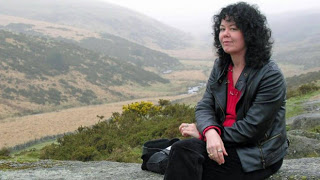 As I finished reading Afflictions & Departures last week, I sent Madeline Sonik an email requesting an interview. She replied that she was getting ready to fly to Toronto for the Charles Taylor Prize award ceremony, but if I wanted to call her, she’d be happy to chat.
As I finished reading Afflictions & Departures last week, I sent Madeline Sonik an email requesting an interview. She replied that she was getting ready to fly to Toronto for the Charles Taylor Prize award ceremony, but if I wanted to call her, she’d be happy to chat.
I’ve conducted most of my interviews by email, so the idea of calling a writer—and one I admire very much—was a bit nerve-wracking. I managed to dial the phone and not stammer too much when Madeline answered. Here’s what Madeline has to say about creative writing and writing her parents’ story.
TKM: The stories in Afflictions & Departures cover a lot of your growing up years and are arranged chronologically. Did you write them that way?
Madeline Sonik: Most of them I did, but one or two I fit in after the fact. I didn’t really set out to write a book. I started just with the first essay and then my professor at UBC kinda said, “Oh, you know you could do this, you could actually do a book of these.” And then I was thinking more along those lines. The chronology and trajectory just kinda started showing itself and I went along with it.
TKM: What made you want to write these stories and then to publish them?
Sonik: I was in a creative nonfiction workshop at UBC and we had to write one memoir piece. The first piece in Afflictions & Departures was the piece that I wrote for that class, in 2000. Then with the encouragement of my professor, I kept going. Many of them have won awards in magazines, like “Afflictions” which won the Annie Dillard award in the Bellingham Review.
TKM: Many of the stories talk about your parents’ lives before you were born. How did you research or construct these stories?
Sonik: This comes from family stories and then there are a few documents I have, like my mother’s little journals of the Queen Mary. There are little bits and pieces. One of the techniques I used in the beginning is a fictional technique, “I imagine.” It allows me to fill in the blanks and it’s an interesting technique to use because people forget the “I imagine” part and it becomes the story for them. It’s a wonderful technique that allows you to really explore a story.
TKM: What is the title about?
Sonik: I actually named the collection something else—I can’t remember what I called it—but I’m not very good with titles and the title I had was a very flowery kind of romantic title. The publisher said it’s a great volume but we’ve got to nix that title so he and I kept sending emails back and forth and he asked “Is there any title in the collection?” He suggested “Afflictions” but said “we can’t just name it that” and I thought “what else, what else” and then I thought “afflictions and departures.” I considered writing another essay called “departures” but then I decided no that would be too much. There are a lot of departures already in the essays.
TKM: You’ve written in a variety of genres now. Which would you say is your favourite?
Sonik: My favourite is the one that I’m working in that particular time. So right now, I’m still working in creative nonfiction and I’m really enjoying that. I’m doing my British years—the years I spent in England in my teens—and I’m really having fun with it.
TKM: Is there anything else you’d like to add?
Sonik: I have a new poetry collection coming out in April called The Book of Changes.
More about Madeline Sonik
Madeline Sonik was born in Detroit, Michigan. She has degrees from the University of Western Ontario and the University of British Columbia. Her doctoral thesis explored the application of Jungian principles to creative writing. She has taught creative writing in Victoria and Vancouver as well as the University of Windsor. Her publications include a novel, a short story collection, a children’s book, a poetry collection, and a volume of personal essays. In addition, she has coedited three Canadian anthologies and has won many awards for her nonfiction, including the Annie Dillard Award for Creative Nonfiction in 2006.
Sonik was among 10 authors longlisted for the 2012 BC National Award for Canadian Non-Fiction. The nomination was for Afflictions & Departures, which illustrates an experimental nonfiction genre Sonik has termed a “fracture.” She explains, “A fracture is a series of short, linked memoir pieces that uses techniques of hard-boiled journalism and literary fiction, and self-consciously disrupts or fractures conceptions of linear time.”
Photo source: The Globe & Mail

No Responses Yet